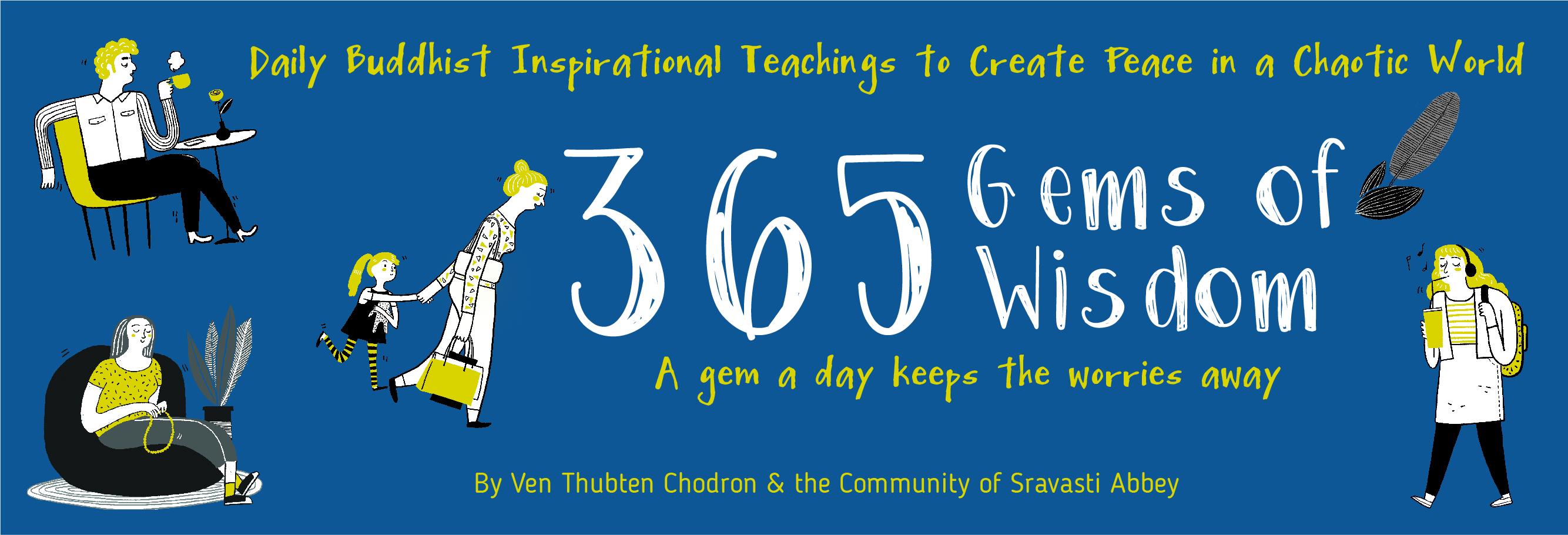February 23 : Accomplishing Others’ Good
In brief, whatever you are doing, ask yourself “What’s the state of my mind?” With constant mindfulness and mental alertness accomplish others’ good. This is the practice of Bodhisattvas.
What do we need to do on a practical level, not just during our meditation sessions but also in daily life? It is crucial to observe our mind moment by moment to see if it is in a virtuous, non-virtuous or neutral state. We have this precious human life for just a short time, so every moment is important for creating the causes for future happiness. Dharma practice is not just what we do on the meditation cushion. We must be mindful and alert of what is going on in our minds throughout the day because we spend much more time off the cushion than on it, considering we spend almost a third of our life sleeping.
Mindfulness and mental alertness are two of the main ways that keep us on track to create positive karma and avoid creating negative karma. Both mental factors are relevant to higher training in ethical conduct and concentration. In terms of ethical conduct, mindfulness remembers our precepts while mental alertness checks our body, speech and mind to see if we are abiding by them. The four establishments of mindfulness practice help us subdue our physical and verbal actions by being mindful of our body, feelings, consciousness, and phenomena. We apply mindfulness to the mind when developing concentration, which involves learning to subdue the defilements and develop serenity.
When meditating, mindfulness is the mental factor that places our mind firmly on a familiar object so that it does not get distracted. We should always set an intention at the beginning of a meditation session that clearly identifies the object we are going to meditate upon and determine to pay attention to it. Mental alertness is like a little spy that checks up to see if we are focused on the meditation object or if we are getting drowsy, excited or distracted. If this happens, we apply the appropriate antidote and renew our mindfulness on the meditation object.
Accomplishing others’ good is the whole purpose of applying mindfulness and mental alertness in the development of ethical conduct and concentration. We must stop harming others before we can accomplish their good and concentrating on bodhicitta during our meditation will help us develop the method side of the path to Buddhahood while concentrating on emptiness and impermanence will help us develop the wisdom side of the path. In this way, we are able to eliminate both self-centred attitude and self-grasping ignorance to accomplish others’ good as much as possible.
“365 Gems of Wisdom” First Volume (January — March) e-book is out now!

